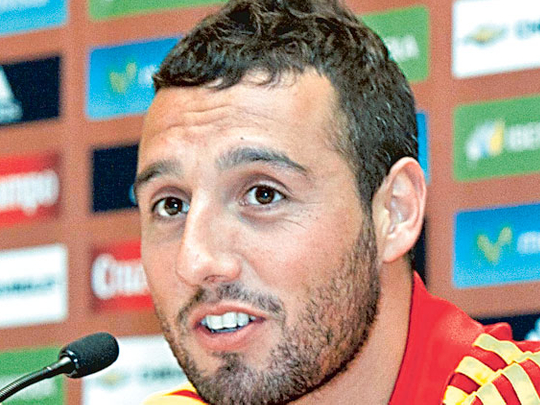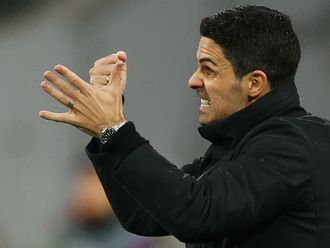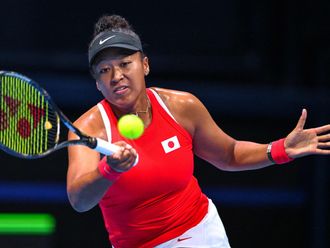
Madrid: Once the big-spending nouveaux riches of Spain’s La Liga, Malaga are suddenly struggling after their owner, wealthy Qatari Shaikh Abdullah Al-Thani, turned off the money tap.
Other hugely indebted top-flight clubs had watched with envy as Malaga splashed out nearly €60 million (Dh272 million) on new players last summer and ended last season in fourth place, their best ever campaign.
Now they could even qualify for the group stage of the Champions League for the first time if they can get past Panathinaikos, with the first leg against the Greeks due in Malaga’s Rosaleda stadium on August 22.
But just days before the start of what may be the most important season in Malaga’s history, their prospects are uncertain because the money that once flowed like water has simply dried up.
Last summer they spent €58 million on 10 new players including the brilliant playmaker Santi Cazorla, French international midfielder Jeremy Toulalan, and veteran Dutch striker Ruud van Nistelrooy.
This summer, it has been the opposite.
In the past few weeks, Malaga have sold Cazorla to Arsenal, Venezuelan striker Jose Salomon Rondon to Russia’s Rubin Kazan and Dutch defender Joris Mathijsen to Feyenoord.
The club’s official explanation for the dramatic turnaround is somewhat obscure, alluding to UEFA’s 2009 financial fair play rules, which encourage clubs to spend within their means.
“Malaga Club de Futbol has begun an internal restructuring process to adapt to financial fair play standards, with the intention of guaranteeing self-sufficiency and sustainability,” they said in an online statement.
“This process, which does not mean any investment by the current owners has been ruled out, will involve organisational changes, to strengthen the club in the future.”
In fact, the Sheikh is slashing spending.
Accused until very recently of failing to pay players’ salaries on time, the club has been forced to sell off some of their biggest stars to help settle arrears.
The €26 million raised from the sales of Cazorla, Rondon and Mathijsen will clearly help.
When Al-Thani bought the club in June 2010, Malaga thought their money troubles were over.
But Spanish media say erratic management from the top meant they were often late on paying other clubs for transfers.
‘We were giants with clay feet’
Former general manager Fernando Hierro, who decided to leave in May 2012, had reportedly been forced more than once to negotiate compromises with clubs who planned to sue Malaga.
Forced to tighten their belts, Malaga could be forgiven for being bitter.
But, at La Rosaleda, they’re putting on a brave face.
“We were giants with clay feet and we had no choice but to sell to regain financial balance,” a club official recently told the daily El Pais.
Nevertheless, without double European champion Cazorla, and weakened by the departures of strikers Rondon and Van Nistelrooy, who has retired, Malaga will have a tough time getting past Panathinaikos on the road to the Champions League.
And the Champions League is a key target, not only because Malaga have never taken part, but because doing so would bring in at least €8.6 million for a club that has had a rude financial awakening.
Malaga will have plenty of company in their financial troubles.
Real Madrid and Barcelona are widely touted as the world’s two greatest football clubs, but they also rival each other in the depth of their debts.
Figures this year showed Real had accumulated debts of €589 million and Barcelona €578 million — more than their annual revenues.
Valencia and Atletico Madrid were also both awash with red ink, to the tune of 382 and 514 million euros respectively.
In April, figures showed Spain’s elite clubs owed €752 million to the tax authorities, a sum that is difficult to digest in a country suffering deep spending cuts and an unemployment rate of nearly 25 per cent.
Several Primera Liga clubs are in bankruptcy proceedings, as well as the recently relegated Racing Santander and another half dozen in the second tier.










